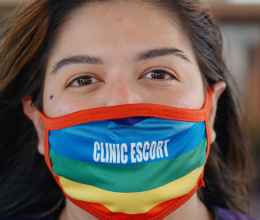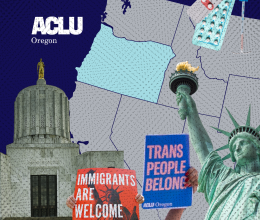
Picture this: A 12-year-old girl is raped and impregnated, and because there are no abortion providers within 4,000 miles of where she lives, she must carry the pregnancy to term.
It doesn’t sound like something that could happen in the United States, right? But for the people of Guåhan, what is more commonly known as the U.S. unincorporated territory of Guam, this was the reality in 2019, even when Roe v. Wade was still law. That year, the only abortion provider on the island retired — and it was this story that sparked the creation of Famalao’an Rights, a reproductive justice initiative fighting for access to reproductive care for everyone on the island.
The fight for abortion access has always been an uphill battle in Guåhan. The first Christian missionaries in Micronesia arrived in Guåhan in the 1500s alongside Spanish colonization, bringing a Catholic religion that heavily influenced CHamoru culture and spirituality. Today, the island’s total population is about 70 percent Roman Catholic, a force that has undoubtedly contributed to harsh anti-choice local government policies for decades.
In 1990, the Guam Legislature passed the strictest anti-abortion law in the United States at the time, making it illegal to even speak about where to get abortions. This law was eventually deemed unconstitutional and unenforceable due to Roe. With the 2022 decision to overturn Roe, however, there were attempts to revive the 1990 anti-abortion law. These efforts were eventually shot down by the Supreme Court of Guam earlier this year after it held the ban was null and void.
The dominance of Catholic religion in Guåhan has also cultivated social and cultural stigma surrounding reproductive health care, particularly abortion. The immense pressure of Catholic, pro-life advocates discouraged medical abortion providers from providing care on the island.
Since 2019, Famalao’an Rights has been at the forefront of safeguarding reproductive health care and bodily autonomy. In the beginning, we were mostly an informational social media campaign, posting infographics and short podcasts on the issue of abortion and its history and importance for the island on platforms such as Instagram and Twitter.
Then, as the government attempted to limit abortion access further, we became community organizers. In 2021, the Guam Legislature proposed legislation that sought to ban abortions after five weeks of pregnancy. The proposed law mirrored similar abortion bans enacted in states like Georgia and Texas. The Guam Legislature eventually passed the ban, to which Governor Lourdes Leon Guerrero, i Maga’hågan Guåhan (the first elected woman governor of Guam) replied with a harshly-worded veto. The Legislature failed to override the governor’s veto, and with that, the ban failed.
During the 2021 attempt to ban abortions, Famalao’an Rights rallied the community together to send over 1,000 testimonies in opposition of the bill to the Guam Legislature. Dozens of people stood with us during multiple protests in front of the Guam Congress Building, and our movement has only grown since then.
It is now 2023, and Famalao’an Rights has accomplished much for the advancement of reproductive justice in Guåhan. Our team of Indigenous (CHamoru and Pohnpeian) and Filipino women leaders have secured the organization’s nonprofit status to support urgent reproductive justice initiatives, donated to local communities in crises during the recent supertyphoon Mawar, advocated for the status and delivery of menstrual products to the island’s schools, and more. We also plan to provide monetary support for those who seek medication abortion via the Hawaii Clinic. Monetary support will vary on a case by case basis, and will be available until all funds allotted are expended. Further, Famalao’an Rights has worked diligently with the ACLU to ensure telemedicine access for medication abortion remains available in Guåhan.
In 2019, having pathways to abortion access was only a dream for us. Of course, there is still a long way to go. But one way or another, we believe that Guam will be a place where every person has safe and timely access to reproductive health care, and a place where everyone can have full bodily autonomy.







